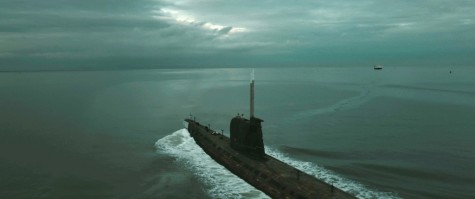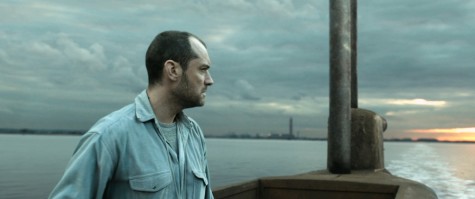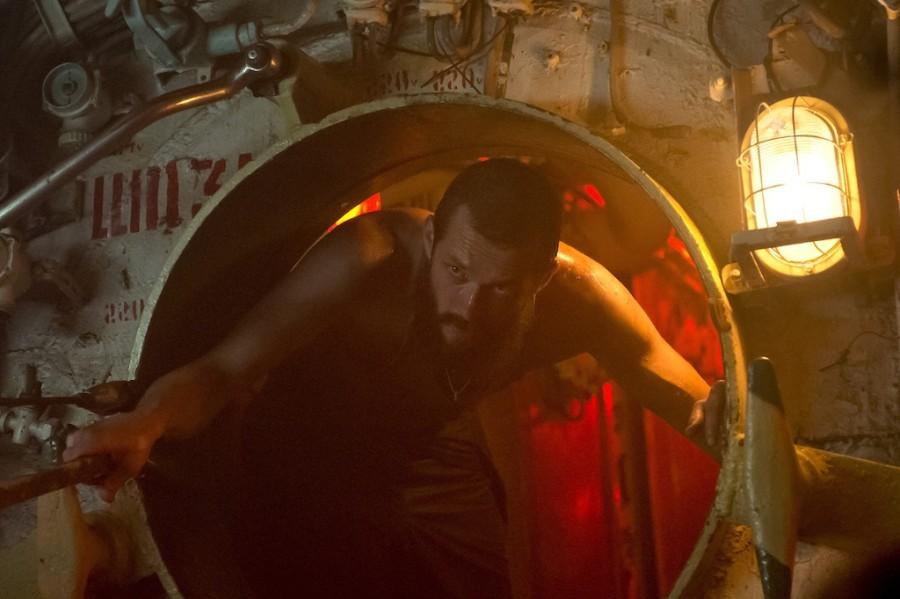Scottish Director Dives Deep Into Genre For His Latest Film, ‘Black Sea’
Jude Law stars as a rogue submarine captain after sunken treasure in ” Black Sea.”
January 20, 2015
By Roger Moore
Tribune News Service
Kevin Macdonald has done his Roman Legion thriller (“The Eagle”), his sci-fi apocalypse (“How I Live Now”) and his political journalism thriller (“State of Play”). But what the Oscar-winning documentarian (“One Day in September”) really had a hankering to try was a submarine movie.
There’s something about the confined spaces on a boat and the restrictions of the genre, he says.
“There are a limited number of moves on the chessboard. All you can do is come up with a different order for them. But you still have to have the same moves. If you do that, the story feels more unexpected.”
So, “Black Sea,” an underwater heist picture involving a retired Soviet sub, a motley crew of laid-off British and Russian sailors led by Jude Law, and sunken Nazi gold, is a veritable checklist of submarine picture conventions.
There’s the thrumming of propellers of a hostile ship overhead, the crew anxiously looking up, as if they can almost see that ship.

“Check,” Macdonald says with a laugh.
The crash dive, in which the depth gauge inevitably cracks?
“Oh yes!”
Watertight doors cranked shut, trapping some, saving others?
“Got it.”
Moisture dripping from rusty valves, valves that rupture at extreme depth?
“Have to have that, don’t we?”

Macdonald was inspired to pursue this project by the Kursk disaster, in which a Russian sub sank and much of the crew survived, only to die slow deaths because of delayed rescue efforts.
“That’s a horrible death, an awful way to go,” he thought. Macdonald figured out a reason for laid-off salvage workers and sailors to be stuck on the bottom of the sea off Crimea, and handed the idea off to screenwriter Dennis Kelly. The result is “a grippingly efficient job of trapping its audience amid the pumping pistons and clanging pipes of its inhospitable setting,” Britain’s Observer newspaper enthuses, even if it “tends toward the predictable.” (Britain’s Daily Express).
Macdonald shot much of “Black Sea” on a rusting, retired Soviet era Foxtrot Class sub because “the price was right, and there’s nothing like having real red-star labeled torpedo tubes for authenticity.”
And while shooting a film with a cast that did not all speak English, Macdonald had an epiphany. He realized the true source for every submarine thriller, from “Twenty Thousand Leagues Under the Sea” to “The Hunt for Red October,” “Das Boot” to “K-19: The Widowmaker.”
“All submarine movies are ‘Moby Dick.’ There’s always some sort of Captain Ahab. The threat of disunity, disloyalty, is very keen when you’re under the sea. And if you’re in the crew, the fear of the captain doing something wrong has to make you paranoid. That’s in all these films. If the captain goes wrong, you die. That’s just as true in ‘Black Sea’ as it in every other film of the genre.”
©2015 Roger Moore
Distributed by Tribune Content Agency, LLC








